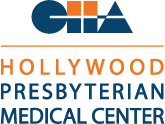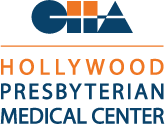In terms of advancing the medical field, the most valuable work is being conducted by research scientists, educators and physicians employed at large scale nonprofit organizations, universities with a deep commitment to innovation and even smaller private foundations.
These groups influence the growth of Convergence in Healthcare and also have a strong influence on innovation in the medical sector. In the digital age, the effects of convergent research arising at the intersection of health and technology can be illustrated most directly in the new business ventures the following three corporate giants are exploring.
Apple
Long considered a path-forger in the technology sector, Apple is perhaps best known for its globally popular smart phones, tablets and laptop computers. In 2018, however, Apple added a number of health-related gadgets to its products and platforms. It is also frequently mentioned in news articles for the projects and partnerships it is making with companies and initiatives in the medical industry.
On the pages of its business site, Apple details its collection of convergent tools available to physicians for use in private office and hospital settings. These include iPhone apps dedicated to the collection and management of personal health data for individual users; virtual tools for the support of research studies and the enrollment of study participants, and digital products which make it simpler for doctors to streamline their work projects.
The site also draws attention to the fact that Apple’s tools are already being put to use to improve the overall function of two US health systems: Geisinger Health System in Danville, Pennsylvania, and the six hospitals of the Ochsner Health System in the New Orleans, Louisiana, metro area.
In March 2018, Healthcare IT News published an article announcing Apple would officially launch a new program known as Apple Health Records. The program allows patients at participating hospitals to join personal health data gathered by the health app on the iOS 11.3 operating system of their personal smart devices with the electronic medical records maintained by the hospital.
Experts believe the ability to directly view a comprehensive portrait of their own health on a personal device will increase patients’ engagement in their own care, improving the overall effectiveness of the healthcare system. Additionally, access to their files will make it simpler for patients to transfer medical records, allowing future healthcare providers to easily obtain thorough documentation of past health issues. The Apple Health Records program has already been adopted by 39 hospitals across the US.
Alphabet Inc.
Alphabet Inc., Google’s parent company, is a conglomerate focused on investment in a wide variety of science and technology-based industries, including biomedicine. Through a number of exciting projects rooted in convergent research, many within the sector agree that Alphabet is poised to be a major disruptor in the medical sector.
As reported in a 2016 whitepaper authored by Massachusetts Institute of Technology researchers, Alphabet is priming the world for the value of Convergence in Healthcare at the level of industry through its establishment of the company Verily. At Verily, scientists are leveraging the power of Big Data to develop new insights into human health.
Further, they are subsequently putting that data to direct use in projects to enable people around the world to live happier, healthier lives. Verily’s current projects are focused on four areas of health and medical technology: smart sensors, interventional medicine, health platforms and population health tools, and precision medicine.
According to an article published by Forbes in early 2018, Alphabet had filed 186 healthcare patents as of March 13 of this year. In late 2017, Verily’s chief medical officer spoke at an event on the campus of Stanford University. There, she stated her belief that the convergence of life sciences, technology and engineering is the "key" to unlocking the "brave new world of human health."
With a focus on the gathering and processing of data, the company also hopes to create a "map of human health," which could change the way the onset of disease is recognized and when interventional medicine begins.
Amazon
Of the three corporations included on this list, Amazon has the least direct experience within the healthcare sector. Though it is not known to have filed any medical patents, Amazon made news in the health IT world for its alleged collaboration with a team focused on electronic health records, health data, telemedicine and health applications known as 1492.
Additionally, founder, chair and CEO Jeff Bezos spoke in 2016 about his belief that Amazon products Echo and Alexa could be useful tools in science’s effort to revolutionize the healthcare sector. Bezos is noted for his relative silence surrounding future plans for the company. However, recent actions confirm Amazon could be of significant importance to the future of the Convergence in Healthcare movement.
One of the ways Amazon is already encouraging innovation in medicine is by hosting competitions for the development of new medical technologies. For example, in 2017, the company announced it would award a prize of $125,000 to the health app developer who designed the most functional and helpful way for their Alexa software to aid diabetes patients. The winning design was an interactive care platform by Wellpepper named Sugarpod, which uses a scale activated by voice through Amazon’s Alexa to monitor the feet of Type 2 diabetes patients for ulcers.
Though details have yet to be released, Amazon recently partnered with Berkshire Hathaway and JPMorgan Chase to establish a new healthcare company focused on technology-based answers to the issue of overly expensive medical treatment. The reduction of the cost of healthcare in the US is also a primary goal of the convergence movement. Amazon’s new venture may soon present the US with a path toward healthcare affordability.
 ENGLISH
ENGLISH  РУССКИЙ
РУССКИЙ 


